
In the course of her career, our guest blogger Debrah Williamson published over 20 romance novels under several pseudonyms, both on her own and with a writing partner. In September 2006, her first mainstream novel Singing With The Top Down was published in trade paperback by NAL. A coming-of-age story set in the 1950s, it has received rave reviews and even been compared to To Kill A Mockingbird! Her second mainstream novel Paper Hearts was just released last month, and Aunty guarantees this is a three hanky read! In addition for the past several years, Debrah taught fiction and screenplay writing at the University of Oklahoma, Norman. Welcome to the lair, Deb! We are pleased as punch that you could join us today.
DW: Thanks for inviting me. Great to be here. And congratulations again, Cindy, on that first sale!
AC: ((HUGS!)) and thanx, Deb! Please tell us about your decision to move from writing romance to women's fiction.
DW: Moving is nothing new for me. As half a collaborative team, I wrote category and historical romances for a number of publishers. By the time I went solo, the category world had shrunken like a globally warmed glacier.
I had to rethink writing romances when I read the following in a revision letter: I feel you are trying to write a longer story so cut this, thus and such.
50K words weren’t enough. What to do? Before my last romance hit the shelves, I feared the line would soon fold. It did. Starting over – again – was the right decision.
At this stage in my career and life, women’s mainstream fiction suits me fine. I’ve been happily married a long time and keeping true love is more relevant to me than finding it. *G* I’m ready to write about the other problems life throws my way.
AC: What were some of the differences you had to deal with, not just the writing, but other aspects like marketing, reviews etc.?
DW: Everything’s different. Content. Editorial expectations. Production schedules. Deadlines. Promotion venues are less accessible. Reviews are harder to get. You must learn to write and speak a whole new language. Many more doors may slam in your face, but you can also receive more chances. Persistence pays off.
Writing longer, more complex novels forces me to continually grow as a writer. Moving to mainstream may not be for everyone, but it worked for me.
AC: How did teaching help strengthen your own writing processes?
DW: I have taught both university students and older adults in continuing ed. College students are fresh and inspired. Ready to tackle the world. I love their enthusiasm. Adults who have postponed their dreams for a long time are eager for someone to show them the way. Being that someone makes me a better writer because I have to work harder, expand my own horizons, think more deeply and live by the guidelines I offer.
AC: Please share 2 or 3 screenwriting techniques (and examples) that the writers among us can use in our next novel.
DW: I could teach a whole class on the subject but will try to keep it brief. *G*
I’ll bet every writer who ever took a course or read a how-to book knows the cardinal rule of writing: SHOW DON’T TELL. Am I right?
That’s where screenwriting techniques come in. They help us abide by that rule. If you read classics written before the first film hit the screen, you know that telling was acceptable in those days and authors could take as long as they wanted to tell a story.
Today? No way!
So let’s start with an establishing shot. In a script it’s found in the slug line, without description or dialogue. For example: EXT. DESERTED SMALL TOWN STREET – NIGHT.
Won’t work in novels, right? But it’s just as important to immediately identify the locale where the story takes place. Today’s readers watch TV and go to movies. They want to “see” where they are. Keep this in mind because I guarantee opening with an establishing shot will help you avoid telling too much, too soon, and breaking that cardinal rule.

Here’s an example from the opening paragraph of PAPER HEARTS.
Cold wind chased a lone girl down the dark, empty streets. She hunched into her denim jacket and ducked beneath the awning of a store that would not open for hours. Overhead a hanging signboard groaned. The air was heavy with the threat of rain. Like any wild creature caught out in the open in unfamiliar territory, Chancy Deel was desperate for shelter.Do you see her? Do you have questions about her? Her situation? Do you want to know a little more? If so, then the establishing shot did its job.
In a plot-driven script, the most important element is concept. Character-driven stories don’t have big concepts. No one sets out to kill a giant shark, save the earth from asteroids, or catch a serial killer. In these stories characters are trying to save themselves or other people they care about.
In movies, we remember great concepts BEFORE we see the film, but we remember great characters long AFTER the film is over. Same goes for novels, in my opinion.
Since there usually aren’t any explosions, car chases or volcano eruptions in character-driven novels, it’s crucial to make the protagonist “relatable” (a Hollywood term) as soon as he or she is introduced. There are many ways to do this. Here are a few I’ve used:
1. Take away the character’s real power, but give her strength and humor.
My novel SINGING WITH THE TOP DOWN (set in 1955) is told in first person by Pauly Maloney, thirteen.. Pauly is poor. Her parents dump too much responsibility on her and are stingy with love. She wants more out of life but always gets the short end of the stick.
In the opening scene, Pauly is clearly at a disadvantage. Here’s a passage that gives the reader insight into her character and shows she has strength and humor:
Mama named me after the movie star Paulette Goddard. Pop decided Paulette was too Frenchified for our part of town and cut it down to the Bone. Pauly Maloney was not an easy name to live with. Pauly-wog. Pauly want a cracker. Pauly Wolly Doodle All the Day.2. Heap a pile of undeserved misfortune on the character.
The first scene in the book takes place at a traveling carnival. In chapter two Pauly’s parents are killed in a roller coaster accident. Big misfortune for any kid.
3. Make the character yearn for something she can’t have.
Pauly wants to be loved. Will she get it? Here’s the passage that concludes chapter one:
Knowing better than to talk back and risk being backhanded by Mama in public, I bit my tongue. Turning her back on me, she locked arms with Pop, and they leaned on each other as they floated away…Without another glance in my direction, my parents struck out across the parking lot and zeroed in on the bright midway like a pair of light-starved moths.This is a favorite subject with me and I could go on and on. But I’ll wrap it up, using a touch of what I am about to discuss - irony. (This should be short and oops! It isn’t. *G*)
A good script, plot-driven or character-driven, is an ironic script. If a polished businessman falls in love with a prostitute he hires to be his one time date, well, that’s ironic - Pretty Woman
If a waitress secretly saving money to escape her not-so-nice husband suddenly finds herself pregnant, you have sadness and humor and irony - Waitress
If a coastal sheriff who doesn’t like the water has to kill a big ol’ set of jaws, yep. Ironic.
See what I mean? Irony provides both drama and humor. And that can be essential for character-driven stories.
For example. In SINGING WITH THE TOP DOWN, Pop takes the family to the carnival to cheer up Mama. Both parents are killed and the irony sets the story into motion.
In PAPER HEARTS, Max goes to the car in his garage with a death-by-carbon-monoxide plan. He finds a runaway girl who eventually gives him a reason to live, getting that story going.
In conclusion, find the irony in your story. Use it and make your readers feel even more emotion.
AC: Any final words of wisdom or experiences you'd like to share?
Don’t be your own worst enemy. Never give up. And don’t allow negativity — yours or anyone else’s — to destroy your dream.
Thanx for the GREAT ADVICE, Deb and for the very informative interview! If you'd like to read more writing tips and advice check out Debrah's website: www.debrahwilliamson.com
And for all our readers, do any of your favorite movies use one of the screenwriting techniques mentioned? Please SHARE it with us in the comments. Also, if you have any questions about screenwriting or Debrah's books or anything else, ASK AWAY! A signed copy of her latest release Paper Hearts will go to one lucky commentor.

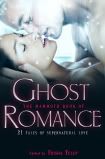
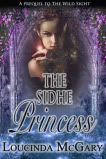
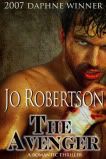
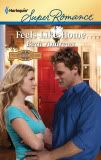
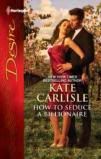

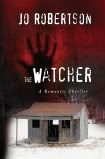



















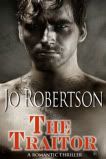




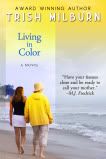
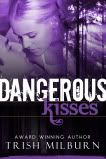









































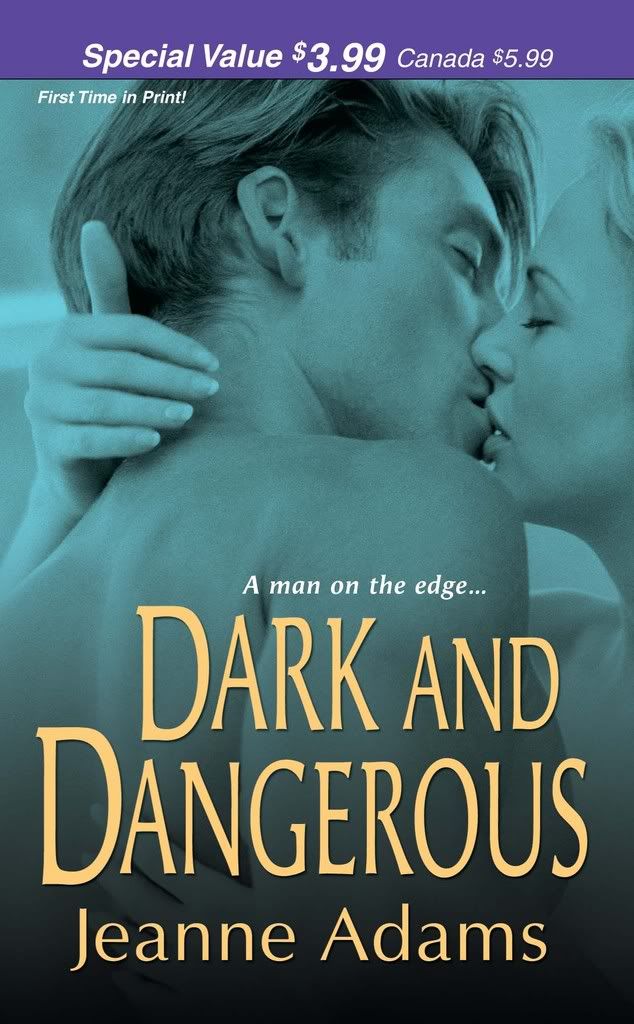



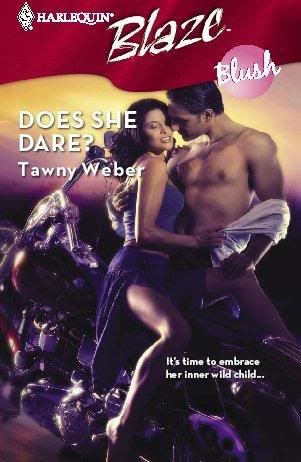





52 comments:
AC and Debrah, what a great interview! I love meaty stuff about writing techniques and you definitely gave us some great tips there. Do you want to come back and give us some more? We'd love to have you!
Interesting what you said about the difference between writing category and single title. It must have taken courage to launch into a new career like that. It sounds like it's paid off in spades. Good luck with your books. They sound wonderful.
I agree with you about modern writing being so cinematic. Even in terms of cutting from scene to scene. The books I read growing up (you know, back before the Norman Conquest!)always had detailed transition scenes. Now it's off with the old and in with the new with nary a word of linking between them. And the weird thing is people cope perfectly well because they're used to that storytelling technique in the movies.
Hi Debrah and welcome to the Bandit Lair! Both of your women's fiction books sound great.
As to one of my favorite movies that uses irony, I'd have to point out the begining of French Kiss. Kate (Meg Ryan) is trying to face her fear of flying to go on a trip to Paris with her fiance. When she is unable to do so, he goes on the trip himself and finally dumps her for another woman. Now Kate has to actually go on a plane trip to Paris to win him back, but in the mean time she meets Luc (Kevin Kline), falls in love and finds a place to ultimately put down roots. (Cue big sigh!!)
Love that movie!
Hi, Debrah, and welcome to the Lair! We Banditas adore movies and books and talking about them, so this is a great topic.
One of my favorite movies is "Moonstruck". Loretta decides to marry Johnny because he is safe and she wants to trust her head, not her heart. Then she meets his brother Ronny, who lives life according to his heart, not his head. She realizes the only way she will be happy is to follow her heart, so she dumps Johnny (who was going to dump her anyway) for Ronny. All this irony and plenty of comedy, too. A winner all around!
Interesting interview.
In answer to your question - "do any of your favorite movies use one of the screenwriting techniques mentioned?"
One of my favorite movies is GroundHog Day. I think it would fit under #2. Heap a pile of undeserved misfortune on the character
Hi Debrah, wonderful blog, thank you for joining the bandits for a day!
I've always believed screenwriting tips make a world of difference for novel writers. One of my favorite movie examples of rooting techniques is The Firm. In the first 3 minutes the film establishes with snippets several relatable character qualities - hard-working, intelligent, poor, respectful, etc.
I particularly enjoyed your suggestion to look for (and punch up) the irony.
Welcome to the Bandit Lair, Debrah. I enjoyed Singing with the Top Down and will certainly put Paper Hearts on my TBR list.
Excellent, excellent interview, Cindy, and lots of good tips, Debrah. I love the posts where we can actually learn something new. Good job! I'll whip over to your website and see what else I can learn.
Welcome Debrah - glad to have you with us. Thanks for the interesting interview and post.
Your comments about setting the scene struck home. I'm currently writing a book about a puck bunny *grin* (Pretty Woman meets Bull Durham with a hockey twist) and it is important to establish sympathy for her early on.
So, I went back to those two movies to see how the directors had made Julia Roberts and Susan Sarandon sympathetic in the first 10 minutes of the film. It's very subtle, but so clever!
And most of it is done, not through dialogue, but through actions.
Anna, thanks for inviting me back. I'm a novice at blogging, but would definitely give it a try!
Taking a leap without a net just means you have to close your eyes and go for it!
In all honesty, I wasn't afraid of trying a new style. In fact, I felt comfortable with women's fiction because I'd been reading it for years.
Maybe that's why my romances tended to be conceived with story elements that had to be trimmed and revised out.
I did that before submitting, until eventually my alternate writing process insisted on equal time.
So true about transitions. Novels use the CUT TO technique effectively these days. Have you recently re-read a classic or older book (say early romance saga) and clearly seen the changes today's market demands?
Anna, I appreciate you jump-starting my thought-process today!
I should have posted this portion first:
Good morning everyone! Well, it isn't quite noon here in America's heartland, so it's still officially morning. Sorry I'm late, but I'm a night owl. Always have been. Lark? Crack of dawn? No way.
Thanks for the compliment, Suzanne. Waiting for reviews to come in will definitely cost you fingernails, but so far, so good!
In fact, reviews are another thing
different about the mainstream world.
Books tend to stay on the shelves longer than romance, so the review process isn't over in a few weeks. *G*
In other words, you have more than 28-30 days to make it or break it!
I knew some time ago that a review for Paper Hearts might appear in The Dallas Morning News, and boy, did I sweat that one out.
But it hit last Sunday, and I heaved a huge sigh of relief.
Yes, I agree. French Kiss is a great movie!
Caren, I love Moonstruck too.
In fact I watched an hour-long interview with the director, Norman Jewison, over the weekend, and he spent time discussing it.
Cher has several excellent movie performances to her credit, but Moonstruck is by far the best, in my opinion.
Loretta is one of those characters you remember long AFTER the film is over.
And yes, irony can be a great basis for humor -- drama too -- because the irony creates a lot of emotional involvement.
That's one reason it works so well in character-driven stories like I write.
With the readers expecting no big, exciting plot developments, the characters and their lives must be emotionally involving.
Christyjan,
Yes! Groundhog Day definitely falls in line with #2.
Donna,
Great observation about The Firm.
A script has an establishing *shot* in all caps before a scene, but the goal of the establishing *scene* in the movie is to give the audience empathy for the character.
I like to use irony too. In fact I'm one who *experiences* irony way too often. LOL
(AC stumbles bleary-eyed from the depths of the lair)
Welcome Deb! And you crawled out before I did, but that is no feat. :-P Now pardon me whilst I pimp... er, um, PROMOTE your work!
Singing With The Top Down is a sweet and charming story that has really developed a following. In fact, teachers are putting it on recommended reading lists! And it sooo NAILS the 50s. Not that your old Aunty would KNOW or anything.
Oh and Christyjan, "Groundhog Day" is one of MY fave movies too. Talk about dripping with irony!
AC
I thoroughly enjoyed your interview which was fascinating and informative. I am enthralled with your new release and many congrats on this special novel. A movie that I think is exceptional is Pleasantville for everything that it conveys. Unique and appealing as well as original.
Jo,
I'm so glad you enjoyed Singing with the Top Down. Hope you like Paper Hearts too.
I do have some *essays* on my website that deal with reading and writing. And teaching. *g*
Thanks for checking them out!
When I teach writing courses, I spend time trying to help students discover their own unique writing processes.
In my own early days, I was frustrated to take a class where the writer/teacher basically says: "Do it my way. Or else."
If your own inner processes are nothing like that, you can become very discouraged.
Most students sign up for classes hoping to learn some magic tricks to get them published.
I believe it's more important, at first, to encourage them to lay a foundation that will help them the REAL problems writers face every day.
Before teaching them how to structure a scene, I think they need to discover what they want. And why.
They need to know how to force themselves to give up something fun in order to spend a lot of time at a computer.
Most importantly, writers must learn how to avoid being their own worst enemies. How to deal with procrastination, perfectionism, fear of rejection.
Even fear of success.
Of course brand new writers tend to look at me strangely when I mention that. LOL
Debrah, sorry I'm stuck on "Moonstruck" today, but the establishing shot(s) for that one so firmly root us in the story. Shots of a moving truck carrying opera scenery manuevering through the streets of Manhattan, with "That's Amore" playing. Shots of Loretta walking from one small Italian business to the next, doing their books and trading small talk with the business owners.
It perfectly encapsulated characters living small lives in a big city and the huge cultural divide between the uptown and downtown crowds (just like Ronny's opera of choice "La Boheme"). There is so much to admire about the structure of the movie--not to mention the fabulous dialogue. I have often touted it as the most quotable movie ever! *g*
Debrah, do you see the trimmed-back exposition and cut-to sequels being the style of this century? It seems, visual creatures that we are, that this is now necessary in our writing in order to hold the reader's attention. I wonder how future forms of entertainment will affect books?
Anna, your puck bunny story sounds fun! I would definitely read it.
At the risk of alienating part of the writing world, I will go out on the limb and admit that one of my biggest criticisms of some novels today are unsympathetic characters.
Here's my personal rule of thumb.
If I wouldn't want to drive across country in a compact car with a character, I don't want to waste time reading about them. LOL
I prefer character-driven movies. That's what I look for on the rental shelves. Small-budget films. Independent films. Even foreign films with subtitles.
Because most Hollywood blockbusters aren't my style.
But the crucial thing in character-driven stories is to make those characters relatable.
They don't have to be perfect. They don't have to even be nice. They just have to make the viewer or reader recognize something of themselves.
For example, I recently watched a movie on Lifetime Channel starring Kirstie Alley called Write & Wrong. Highly recommended, btw.
I like films about writers, even though Hollywood tends to get us wrong most of the time.
Not in Write & Wrong. The writer got the protagonist -- a Hollywood screenwriter -- RIGHT. The film was well-written and funny and sad.
A few nights later I tried to watch another one on the same channel. Can't remember the title, even though it starred an actor I usually like, Ray Liotta.
I didn't like ANY of the characters. Didn't agree with ANYTHING they did. Didn't feel AT ALL connected to them.
So I kept going to the computer during the film. Picking up magazines. Totally distracted.
My husband was okay with the movie. Not me.
Does that make sense or am I rambling? LOL
Thanks, Ellie. I love Pleasantville too.
Oh, and your name reminds me of another character in a movie that works for me.
Elle Woods in Legally Blonde.
I agree with screenwriter Blake Snyder (whose book Save the Cat! has been a textbook in my classes) that Legally Blonde is a killer title.
He says it nails the concept but is not too ON THE NOSE that it's stupid.
I agree.
Thank you, Aunty Cindy. Not just for inviting me to the Lair today but for dragging yourself up so early.
And for plugging my books. (Wink) Your check will be in the mail.
Caren, I agree with your statements about Moonstruck. Clips were shown during the Jewison interview.
The channel showed the movie right afterward so I saw those opening scenes and really wanted to watch it again.
But my son was visiting. He and I are movie buffs and he often brings me oddball movies on DVD to watch.
He wanted to change the channel, so I didn't see Moonstruck again. But I will. Next time it comes on and I'm alone. *G*
Re: your question about trimmed-back exposition and cut-to sequels being the style of this century.
Definitely a trend. Styles tend to change but somehow I don't think that one will.
If you haven't noticed that (koff, koff)I'm wordy, I admit I still have to take out lots of words in a final edit. Even though my publisher is generous in that department.
But pacing is important. Extraneous material needs to go.
Action and dialogue are vital.
My current project has undergone a number of revisions because for me, the key is developing a style that allowed me to evoke emotions and provoke thoughts without turning off a reader.
Including young ones who are into an abbreviated style of text messaging. LOL
Another key for me when writing character-driven novels is making my style match my characters' personalities and background. They aren't all the same. So my approach can't be either.
Otherwise, the characters won't seem real enough.
Hi Deb!
Great blog! Everyone, I've read SINGING WITH THE TOP DOWN and it's excellent. Totally recommended. I'm waiting for PAPER HEARTS to arrive from Amazon, so, Cindy M., you don't have to put my name in on the draw. Just popping in to wave to Deb. :::wave:::
Cindy
Thanks Debrah! I agree with you about making characters relatable! (I hope I've managed that with my puck bunny.)
That's why I think those two movies did such a great job with their set-up. In Pretty Woman for example, we understand that JR is a hooker but we also see that she is responsible, loyal, smart and wants a better life. And the differentiation between her and Kit is stark, but vivid.
I also think it's why Meg Ryan does so well in movies like You've Got Mail. Even though you know in real life she's not nearly so nice!
Caren - I love Moonstruck too *grin*. Course, now I've got That's Amore on the brain!
Loved SINGING WITH THE TOP DOWN and am about to read the latest, PAPER HEARTS. I can't wait! Debrah is a wonderful story teller and novelist. I wish her continued success!!
marie
Great to see you here, Cindy!
Thanks for stopping by. And thanks for ordering Paper Hearts. Hope you like it too.
Everyone, Cindy's a writer friend. She interviewed me in the past for her own excellent writing web site.
Cindy, want to let people know how to visit it?
Aw, Marie, Thank you. So kind!
Your Amazon review was a great boost for Singing with the Top Down.
Anna said: I've got That's Amore on the brain!
Me too! And one of my favorite movie posters is for Moonstruck.
That wonderful shot of newly optimistic and hopeful Loretta, posed in from of a huge full moon has an impact.
The director talked about how much he liked it.
Thanks for a great post today, Debrah! I loved the theory about sympathetic characters & compact cars! If you couldn't take a road trip with a character in a teeny tiny car, you won't stick with them through a book either -- I'm going to stick that on a postie note near my computer somewhere.
And speaking of sympathetic characters, can I just mention Tony Soprano?? My husband & I got hooked on the Sopranos this summer & burned through the entire series (god bless blockbuster.com). Anyway, I've spent these past months admiring the writers for managing to make a man as conscienceless, impulsive, rage-driven & vengeful as Tony Soprano utterly sympathetic. You know the guy kills people, you know he cheats on his wife, you know he beats people up who can't pay him, & yet somehow, you're rooting for him? What kind of voodoo is that?? And where can I get some?
I think it's because of just what Debrah said. In addition to showing all the ugliness about him, the writers also show what's universal & "us" in him, too. Struggling with his children leaving the nest, coping with his fears that his mother never loved him & that he's not strong enough or smart enough to do the job he's worked his entire life for.
Anyway, just had to add that to the list of ironic concepts we love: Mobster as family man, & in therapy to boot. :-)
Susan
Wicked cool interview. Irony is my favorite tool--though I think I use it more unconsciously. I would love more tips if you're willing to share them. :)
I have to second the movie: French Kiss. Funny, dramatic--and ironic.
Currently my favorite movie to watch for character based plot is: Stranger Than Fiction. Harold Crick isn't particularly "heroic", but it's funny and heartbreaking to watch him come to terms with his "demise" and make the most of what is left of his life. And the script seems to function on a lot of irony. *LOL*
Debrah... ok........ i'm so embarrased.. i didnt realize "okie deb" was you haha!!! i was wondering who this gal was who was posting so many comments here. haha!
and thanks for the kind words on my review of SWTD. i just write it as i sees it! :)
Marie
That was such a wonderful post, thank you Debrah. I'm particularly interested in your comment about irony. I realized I have that in the novel I just handed in. My hero reads my heroine's erotic diary, which should be a step-by-step guide to seducing her and pleasing her in bed but all it does is complicate matters--because fantasy rarely reflects what we want in real life.
I think irony is something we instinctively build in to our stories to provide conflict, but it's a revelation to have that stated in black-and-white. Thank you, Debrah, this has been such a 'lightbulb moment' for me.
I can't wait to read Singing with the Top Down.
Hey, Deb!
While I have heard you mention how screenwriting techniques can apply to novels, this is the first I've gotten specifics...and wow, they sure make sense. Especially, for me and my writing, about the establishing shot. Good thing I haven't sent my WIP to my editor yet...there's still time to plump the opening up!
And I must tell everyone to run--don't walk--to pick up Deb's books. Her characters are as real as your neighbors, and her prose is pitch-perfect. Wonderful, wonderful reads.
Aunty Cindy,
Allow me to congraulate you one more time on your first sale!!!
Hi Debrah! Welcome to the Lair!
I love movies as writing "guides" and really appreciated your comments on irony and front-loading the visuals.
Caren, I second the Moonstruck comment and agree that it's one of the most quotable...for instance:
"..And someday you'll die and I'll come to your funeral in a red dress!" Talk about irony. Grins.
The most quotable would have to be Princess Bride, which pretty much does everything you mentioned, Debrah - heap piles of undeserved tribulation on deserving characters, make the characters amazingly sympathetic, and drive the plot both with visual and plot devices.
Congrats on your obviously very successful move to mainstream. It sound like a challenge, but that you more than met it.
I also love that you brought up the irony dimension of writing. We have in life - Murphy's law - and reflect it in our work, but I think it takes a certain knack for making it smooth. One I want to work on. :>
Best of luck w/ the reviewers. I'll be on the look out for both your books in B&N on my next trip!
Susan, thanks for offering an excellent example in Tony Soprano.
Good reason the series won so many Emmys Sunday night.
A character-driven series like The Sopranos or Six Feet Under depends on universal appeal for the viewer, especially when the characters are so troubled.
Works great for character-driven novels too.
I have a theory why *good* viewers identify with *bad* characters like Tony.
We've all *felt* some of that rage and vengence and anger. But we hold it back. We don't act on it because we inhibit our compulsions.
We are very afraid to lose those inhibitions. Subconscious fear makes us connect too.
When a character does what we're afraid to do, watching provides a safe outlet. A message. Positive reinforcement. Right?
Thanks so much for being here, Debrah and for a very informative and entertaining interview *g* Your books sound wonderful!
I too love French Kiss! So much fun :-) Another movie I can watch over and over again is Sweet Home Alabama. I think Mel's journey from thinking she wants nothing to do with her small town past (including the people in her past) to accepting herself AND that past is at least a little ironic. And a journey I love :-)
I like movies about writers too, and loved Emma Thompson's portrayal of one on the edge in Stranger than Fiction.
When my daughter and I saw Secret Window with Johnny Depp, she said, "Mom, does the world really need more movies to show us how crazy writers are?"
If anyone's interested, the UK's Telegraph has a good article about Hollywood's portrayal of writers.
I'm not sure how to get the link in but if you Google Telegraph Hollywood Writers, it shows up first on the list.
And a good idea, Christine, to discuss irony further. I'll think about that. In the meantime, anyone have any thoughts?
Very interesting post your books sound very good I will be watching for them so as I can read them. I have enjoyed the movies that have been mentioned very good stories.
Have Fun
Helen
Hi Debrah! I'm so glad to see you blogging about your fantastic books. You know exactly how to evoke a ton of emotion from your reader. I think that's what grabbed me right from the start. And you make it seems so effortless. Reading your books is like getting a writing lesson. I just can't get enough. Singing With the Top Down was such a powerful story. You made me feel Pauly's desperation, her pain, and her need for love. Paper Hearts was equally powerful in that it makes a reader stop and think about the very real plight of the elderly and homeless teens. You wove those two ages into an unforgettable story. Max and Chancy were both looking for impossible things and you showed them their hopes and dreams were attainable when they opened their hearts. I don't think I'll ever look at the elderly or the homeless in the same way I did. I think one of the most important duties of a writer is to teach the reader something they hadn't considered and to do it in a subtle way, little by little. Thank you so much for writing these stories and giving us food for our souls. I wish you the best.
Thanks, Tina.
I really enjoyed reading your book, Top Ten Uses for an Unworn Prom Dress.
I have it back safely now but loaned it to a young lady picky about her reading.
She thought it was great and will be buying your future titles.
I'm glad you found something useful in my comments. Combining screenwriting and literary techniques works well for me because it fits my process.
For me, seeing the action and hearing the dialogue is a definite plus in getting it all on the page.
Jeanne said: "..And someday you'll die and I'll come to your funeral in a red dress!"
Great quote indeed. It was in one of the clips in the director's interview. *G*
Princess Bride is another of my favorite films and I love the book by William Goldman. My kids still use quotes from that movie in conversations.
About irony: I like to use irony because it also offers a taste of destiny.
And often proves that everything happens for a reason.
Great observation about Sweet Home Alabama's Mel, Beth.
Thanks for your comment, Helen.
Is it me, or has anyone else noticed that many favorite films mentioned are character-driven?
Any comments? Don't get me wrong. Plot-driven is equally important.
Many scripts and novels rely on high concept and Hollywood is crazy about it.
But personally, character-driven suits my taste.
Just as I prefer crispy and salty foods over gooey and sweet. LOL
Linda, thanks taking time to drop by.
I really appreciate your comments.
They strike a chord with me because I think writers should examine the *whys* and *wherefores* of words they commit to the page.
Entertainment is the primary focus of films and novels, but other important *Es* can be involved.
Emotionalisim. Empathy. Edification. Effectiveness. Elucidation. Enrichment. Enthusiasm. Empowerment.
To say nothing of Earning a living. LOL
When a writer knows what she is trying to achieve through theme, the process of writing a story is simplified, in my opinion.
Anyone else have ideas about this?
For example, I've worked with both troubled children and the elderly, two fairly invisible, voiceless populations in today's society. And understand their plights.
So Linda, thanks for letting me know that at least for one reader, I achieved one of my goals in Paper Hearts.
Giving those two populations a bit of a voice.
Ladies,
As stated, I'm a novice blogger who seems to be responding at length to every post.
For all I know, that might be a big fat no-no in this medium.
Plesse feel free to advise me to cut back. I won't mind.
Debrah, I've just spruiked your blog on a couple of loops because your advice has been so great and I've told everyone to make sure they check the comments because there are such gems there. If you've got the time to answer so full, PLEASE don't stop! This stuff is pure gold!
Debrah,
Thanks for stopping by the Bandits Lair. I really enjoyed the interview...great job AC and congrats on your sale!!!
What really grabbed me was the inclusion of irony in stories. I think we do that instinctively, but it was fascinating to be able to put that into words and consider what options there might be in future books. Thanks for the tip!
Heck NO you're not commenting too much, Deb! That's what comments are for, and most of your responses are GREAT! Feels like I've attended a wonderful one day seminar on Novel and Screenplay writing techniques.
AC
waving to Cindy PK and BIG MWAH to Tina for the congrats
Anna, thanks for spreading the word!
Kim, I'm happy you found something useful.
Aunty Cindy, a seminar, huh?
That's good because I'm scheduled to present at a writing conference next spring on this subject, and you ladies really got my creative thinking juices flowing today.
Thanks to all of you for your interest and insights. I'll check back one more time before I turn in tonight.
If this wraps everything up, I just want to say how much I appreciate the invitation and opportunity to meet so many creative new people.
Debrah, you've been fantastic. Do come and see us again! You've really got me thinking about a lot of stuff, especially irony (which comes very easily to an Aussie! Our whole national character is based upon it!). Thank you!
Thanks, Anna. I'd love to return.
Just say the word.
Best of luck to everyone in writing or other worthy endeavors!
Thank you, Debrah! And just wanted to say (really late) that I agree with you that the most memorable movies (and books) are character-driven. I love a plot-filled movie, but after a few months I don't remember the plot points in any detail, just that it was good.
Characters, on the other hand, I remember forever! Which is good news for me, since I write character-driven stories. *g*
Thank you SO MUCH for being with us. I had a couple of light bulb moments today and you know that the longer you write, the fewer you have. So a huge THANK YOU and we hope to have you back again!!
Post a Comment